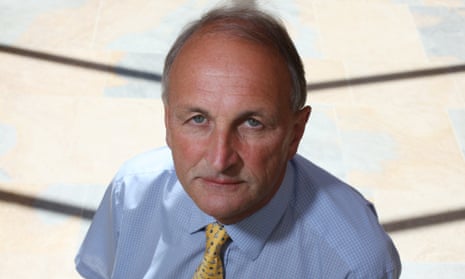The NHS has declined so much since 2013 that patient care is at risk of deteriorating, treatment targets are routinely being missed and it is heading for a £2bn deficit, the King’s Fund will say on Thursday in its assessment of the coalition’s health record.
Patients will lose out as waiting times become more of a problem under whoever forms the next government, which will also have to write off hospitals’ fast-deepening debts or risk them laying off staff, thereby damaging care.
NHS performance in England held up well during the coalition’s first three years in power from 2010 but after that began going downhill, according to the thinktank.
Waiting times are at their highest for years and more and more patients are not being treated in A&E inside the target of four hours or within 18 weeks of being referred by their GP, or within 62 days of referral for cancer treatment, it pointed out. “The next government will inherit a health service that has run out of money and is operating at the very edge of its limits”, said Prof John Appleby, the fund’s chief economist.
“While the NHS has performed well in the face of huge challenges, there is now a real risk that patient care will deteriorate as service and financial pressures become overwhelming,” he added.
After coping well between 2010 and 2013, NHS performance is now “slipping, and we have real problems looming on finances, which have gone from black to red pretty quickly,” said Appleby.
In a gloomy forecast of the service’s near future, Appleby added: “Our assessment is it’s going to be very difficult indeed next year. My speculation would be that once the system is under pressure financially next year as well, we’re going to see some real problems with waiting times and that’s going to have to be addressed, and patients will really feel that.”
Some hospitals have all but given up trying to meet the previously all-important target of treating 95% of A&E arrivals within four hours, said Prof Chris Ham, the thinktank’s chief executive.
The coalition “wasted” its first three years by pursuing then health secretary Andrew Lansley’s unpopular and unnecessary radical restructuring of the NHS, Ham said – a view widely shared privately at senior levels of the NHS.
However, Jeremy Hunt, Lansley’s successor, has rightly prioritised improving quality and safety of care in the wake of the Mid Staffs care scandal over the need for tight financial control, Ham added.
Rates of hospital-acquired infections such as MRSA and C.diff are at risk of rising again because hospital bed occupancy levels are running “dangerously high”, Appleby added. While 85% is generally accepted to be the safe level of occupancy, the average at the moment is just under 90%, while in almost one in five hospitals it is 95% and in some places it can sometimes even exceed 100%, he said.
Such constant occupancy could mean that staff do not have time to clean beds properly, leaving the next patient to use it at risk of an infection, he explained.
However, the coalition’s time in power has also seen the £20bn Nicholson Challenge efficiency drive delivered, productivity rise, the NHS employ more doctors and nurses and it receive real-terms annual increases of 0.8% a year in its budget – more than the 0.1% intended in 2010. But while nurses are doing 10% more on average than in 2010, consultants are doing less than before, the fund concluded.
Dr Mark Porter, chair of council at the British Medical Association, said: “Staff have done as much as they can to protect and improve care but, as this report lays bare, after years of underfunding the cracks are beginning to show. Patients face longer waits for treatment, services are stretched close to breaking point and staff are under unsustainable pressure.”
Rob Webster, chief executive of the NHS Confederation, which represents hospitals, said it was worrying that, just 41 days before the election, some political parties had not yet committed to finding the £8bn extra a year in funding for the NHS by 2020 that NHS England has said is the minimum it will need to remain a viable, high-quality service.
A Department of Health spokesman welcomed the report’s “acknowledgment that we have increased the NHS budget in real terms, recruited many more clinical staff and are treating more patients than ever, just as public satisfaction with the NHS improves.
“As the King’s Fund says, the NHS has ‘performed well in the face of huge challenges’, but if we are to continue to invest in the NHS going forward it needs to be backed by a strong economy.”

Comments (…)
Sign in or create your Guardian account to join the discussion